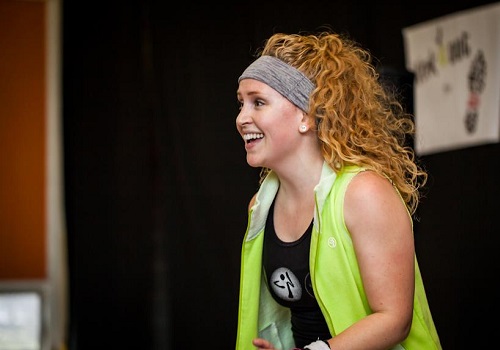Social entrepreneur, business owner, and certified fitness trainer, Robyn Henry, instructs several weight-training classes a week and coaches up to four private clients daily. Well, she used to. Before COVID-19. Before many industries, including her own, experienced a jarring upheaval, forcing her to re-think her business strategy.
“Different scenarios have gone through my head,” she admits. As founder of Work It Out Fitness Studios, Henry has now been pushed to think critically about the future. “I never imagined shutting down my business. But if things continue the way they are, I might have to consider it.”
Along with school closures, grounded air travel, and closed borders; COVID-19 has upended businesses to an unprecedented level. Challenges lurk around every corner, from engaging and maintaining clients to finding consistent work and diversified income streams.
“I’ve experienced a significant drop in training sessions. I’m not working with nearly as many clients as before,” Henry says. “It definitely has had an impact on my finances.”
COVID-19 has forced social entrepreneurs and small businesses to analyze how to best move forward in these volatile times. For Henry, this means offering fitness sessions and consultations through virtual platforms. “It’s not my favourite way to train,” she admits, preferring the meaningful connections she achieves through in-person coaching.
Still, it’s a change she’s realizing is needed; a new focus of growing her impact online. “I’m advertising private virtual training and growing my partnership with an at-home on-demand platform. I’m organizing online communities, offering free resources and tools through social media, to bring health and wellness into people’s lives.”
Of course, she’s not the only one who has been thrust in a different direction. Social entrepreneur and wellness advocate, Li Fryling, has had to make significant changes to her business model. “My work has shifted largely from supporting in-person needs to helping people pivot online,” she explains.
Fryling partners with a health and wellness company to source and provide high quality essential oils. She provides tools and trainings to help customers and business partners better understand essential oils to maximize their use and health benefits. Regularly called to strategy meetings and training sessions, Fryling constantly travels for work. “Since January, I’ve been to Hawaii, Prague, Salt-Lake City, and Vancouver,” she says. But since COVID-19, she has exchanged her time in airport lounges for ZOOM calls.
“A lot of my time now is conducting research and teaching business partners how to exclusively run their business online,” she says. She notes how this change in approach can be challenging for some, so she has learned to follow a set of steps when coaching business partners. “First, I validate their concerns,” she explains. “Then I provide a helpful different perspective, and finally, offer clear direction and tangible tools.”
She emphasizes the importance of approaching business partners on both a professional and personal level. “There is a lot of overwhelm right now,” she admits. “Walking alongside people at this time is really important. Letting them know that every day gets a little bit better, a little bit easier …
I see myself as a voice of inspiration and opportunity. My superpower is feeling where people are at and provide a valuable solution for them.”
Fryling understands this is a volatile, trying time. But if any good is to come out of COVID-19, she feels it will be a greater awareness of health and wellness. “There is just a lot of attention on this area right now,” she says. “People are looking for safe and natural effective tools in their home to remain healthy.”
At Work It Out Fitness Studios, Robyn Henry remains optimistic. “I just want to ensure people get well and stay well. I’m interested in building up a community of like-minded individuals; bringing people together, pointed towards a healthier lifestyle. I want people to get stronger and feel empowered.”
Similar to Fryling, Henry suggests a greater good may come from our collective response to this pandemic. “This has been a really big lesson for people in realizing how much they have to offer,” Henry says. “This is the time to share resources. Reach out to those you are connected with. Provide what you have – knowledge, education, expertise.” She pauses for a moment before confidently concluding: “We have more to give than we once thought.”
Benjamin Rempel holds a Master’s of Public Health and is Member-at-Large for Health Promotion Ontario. His articles and essays have appeared in The Toronto Star, Abilities Magazine, PH SPOT, and other outlets. He writes about public health and social justice issues. Contact him at www.linkedin.com/in/benjaminrempel


